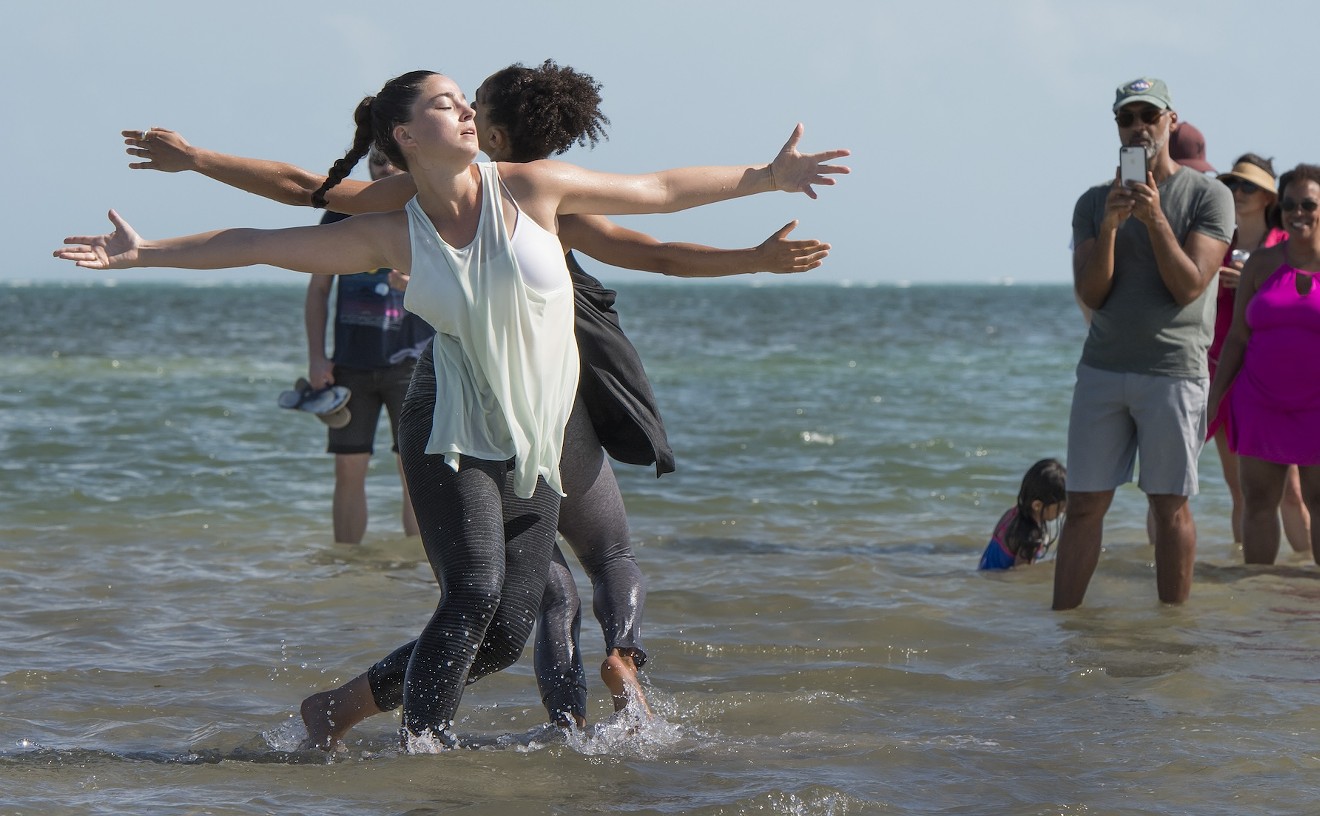This year's three MasterMind Award winners — chosen from a group of ten finalists — will be announced tonight, February 18, at Artopia, New Times' annual soirée celebrating Miami culture. For tickets and more information, visit newtimesartopia.com.
A night deep in the Southwest Florida farmlands means silence. During the day, tourists and city dwellers bustle in at farm stands and stroll along self-picking berry aisles. At night, only a distant guzzler can be heard speeding down Krome Avenue. The mysterious stretch of land referred to as unincorporated Miami-Dade is not quite the Redland, not quite Homestead. But for filmmaker Eric Mainade, it’s home.
“It’s no man’s land out there,” says Mainade, who has been leasing a farm since 2013. One day, he arrived at his boniato (Cuban sweet potato) farm and saw a man sitting out in front with a blade and a questionable grin.
“I saw this rugged dude sitting on a bucket sharpening his knife,” he says. “In my head, I had a crazy vision for a film about a boniato picker and the stuff that goes on down here.” And that is how the film Boniato was born.
The 2016 Sundance short, codirected by Borscht favorites Mainade, Andres Meza-Valdes, and Diego Meza-Valdes (the Meza Brothers), follows the story of an illegal migrant worker out on the titular boniato field. When she finally decides to leave the farm in pursuit of more prosperous opportunities up north, a demonic and supernatural force tries to stop her.
It is a horror action film with underlying social relevance, which positions it with 2007’s Rec, a Spanish horror film that calls out Spain’s homophobia, racism, and xenophobia through a faux documentary. Boniato’s narrative remains a fictional tale inspired by real-life circumstances.
“I wanted to make a movie about a worker’s experience and all the forces that are keeping them down,” explains the filmmaker. “It had to be action-packed and scary but with a message underneath.”
The trailer opens with audio from President Obama’s executive order on immigration, perfectly positioning the viewer in the present-day immigration nightmare. The threat here isn’t House Bill 675 — the bill that forces local governmental entities and law enforcement agencies to comply with the enforcement of federal immigration law — but an ancient bunker that houses the wronged spirits of migrant workers who have tried to escape.
Mainade was raised all over South Florida: Little Havana, Kendall, North Miami Beach, but at age 17, he moved to Kissimmee on a whim to work as a performer and stunt man for Orlando’s “Arabian Nights” show. “That was my most formative education. I was living with all these crazy circus folks, who were descendants of vaudeville performers.”
Mainade was a stunt person for the Meza Brothers’ Play Dead and immediately wanted to collaborate with the filmmakers. To persuade the brothers to take on his idea, “I showed them one of my neighbors who I think has buried a storage container under his field. I don’t know what goes on there at night. Probably torturing people under there,” jokes Mainade.
After a warm reception at Sundance last month, the Boniato crew may be expanding the impressive short into a feature film. “We’ll see what happens,” Mainade says. “Regardless, it has been a cool and unexpected ride.”
[
{
"name": "Air - MediumRectangle - Inline Content - Mobile Display Size",
"component": "19274298",
"insertPoint": "2",
"requiredCountToDisplay": "2"
},{
"name": "Editor Picks",
"component": "17482312",
"insertPoint": "4",
"requiredCountToDisplay": "1"
},{
"name": "Inline Links",
"component": "18711090",
"insertPoint": "8th",
"startingPoint": 8,
"requiredCountToDisplay": "7",
"maxInsertions": 25
},{
"name": "Air - MediumRectangle - Combo - Inline Content",
"component": "17482310",
"insertPoint": "8th",
"startingPoint": 8,
"requiredCountToDisplay": "7",
"maxInsertions": 25
},{
"name": "Inline Links",
"component": "18711090",
"insertPoint": "8th",
"startingPoint": 12,
"requiredCountToDisplay": "11",
"maxInsertions": 25
},{
"name": "Air - Leaderboard Tower - Combo - Inline Content",
"component": "17482313",
"insertPoint": "8th",
"startingPoint": 12,
"requiredCountToDisplay": "11",
"maxInsertions": 25
}
]











